Though Major League Soccer and its Canadian clubs announced that Toronto FC and CF Montreal had been given the green light to play home matches in Canada as early as this weekend, the Immigration Minister said no exemption from quarantine has been provided to the MLS at this time.
In a statement, Marco Mendicino said they are currently reviewing MLS COVID-19 protocols with provincial and municipal public health officials, but a National Interest Exemption has not been granted.
Mendicino noted that fully vaccinated travellers that have valid work permits, including foreign professional athletes, are not required to quarantine for 14 days.
Earlier on Wednesday, MLS announced that TFC and CF Montreal would be able to host matches in their home cities, although with a limited number of fans. The squads of Montreal and Toronto returned home last week after the federal government loosened pandemic-related border restrictions for fully vaccinated travellers.
The request from MLS and the Canadian clubs was to have Toronto host Orlando City on Saturday and the New York Red Bulls next Wednesday at BMO Field while Montreal would entertain FC Cincinnati on Saturday at Saputo Stadium.
TFC finished out last season in East Hartford, Conn., and started this year in Orlando. Montreal shifted its base of operation to Harrison, N.Y., last year and Fort Lauderdale, Fla., this year. The Vancouver Whitecaps set up shop in Portland and Utah, respectively.
“During this temporary window, Vancouver Whitecaps FC will host their home matches on July 17 and July 20 at Rio Tinto Stadium (in Sandy, Utah) as conversations continue with the Canadian government regarding the three Canadian teams hosting future home matches in Canada,” MLS said in a statement.
A TFC spokesman said the club aimed to have 7,000 at BMO Field Saturday and 15,000 next week, with Saturday’s crowd made up of front-line health-care workers, first responders and season seat members. Montreal looks to host 5,000 fans at Saputo Stadium should the league and teams get permission to return.

Dundas Street as well as other public amenities bearing the name will be renamed after Toronto city council voted 17-7 to move forward with public consultation on a new name.
The street is named after Scottish minister Henry Dundas, who never stepped foot in Toronto and is infamous for playing a key role in delaying the abolition of the British empire’s transatlantic slave trade.
The decision comes following a petition launched by a Toronto man in June of 2020, following global discussions of anti-Black racism in the wake of the death of George Floyd in Minneapolis.
Andrew Louchhead said at the time that Dundas’ legacy is “highly problematic” and hoped the petition would not only lead to changing the name of one of the city’s main arteries, but also start a conversation about who the city honours with street names and monuments. The petition has over 14,000 signatures to date.
In response, the city decided to review the issue in July, 2020. Last week, the mayor’s executive committee approved the renaming of the street based on a city staff report recommending a name change of the street and other civic assets.
The report estimates the cost of re-branding all civic assets bearing the “Dundas” name at close to $6 million dollars.
Following public input, a new name will be chosen in April 2022. The move includes city landmarks like Yonge-Dundas Square and Dundas subway station.

TORONTO (OMNI) – Family and friends of a B.C. man whose vacation in the Philippines went horribly wrong are desperately trying to bring him home, working to raise tens of thousands of dollars to get him back on Canadian soil.
Kevin Lench first got caught by the COVID-19 lockdown in the Philippines. He then became severely ill, and it could take tens of thousands of dollars to bring him back home.
“He doesn’t want to die, and we don’t want him to die. We need a miracle,” Matthew Gionet, a close friend of Lench’s, said.
“He’s very sick, he’s very, very thin, frail, and weak. He cannot walk,” said Gionet.
Lench calls the Philippines his second home, travelling there every winter, and working as a DJ at bars and pubs. He most recently travelled there in October 2019, ending up in Boracay Island. When the pandemic hit, he was stuck on the famous island and unable to return to Canada.
He became ill, was admitted to the hospital, and eventually diagnosed with a severe liver complication. Lench’s family only learned about his illness a few months later, when a social media post detailing his story went viral in the Philippines.
“He needs to see a liver specialist and the care he’s getting right now is just not there,” said Gionet. “It’s just a basic clinic. He needs specialized care.”
OMNI News reached out to Lench’s son, who declined an interview, but said he’s grateful for the support pouring in from the Filipino community.
Meanwhile, Lench’s loved ones say they’ve approached the Canadian Embassy in the Philippines for help.
“They told us that unless it’s a political situation or say he was kidnapped or something, there’s no financial aid for health. So, they basically said that you’re on your own unless you have proper health insurance,” Gionet explained.
OMNI News reached out to Global Affairs Canada to talk about Lench’s situation.
“Global Affairs Canada is aware of the case of a Canadian citizen in the Philippines,” a statement reads. “Consular services are being provided to the individual and their family. Consular officials are liaising with local authorities where necessary. Due to privacy considerations, no further details will be provided.”
And while consular services are being provided, Gionet says he thought the government would provide more support.
“It’s difficult, because, I guess, as a Canadian I assumed there would be help. So it’s sad to hear that there’s nothing they can do. It’s pretty heartbreaking actually,” he told OMNI.
Lench has since been transferred to a larger hospital, where he is receiving better care. However, he is still not home.
An online campaign aims to raise enough money to bring Lench back to Canada. His family and friends say, in his current condition, that trip could cost up to $70,000.
“We are positive. It wasn’t looking good for the last couple of weeks. I didn’t honestly think he was going to make it. Somehow he has pulled through. He has hope,” Gionet said.
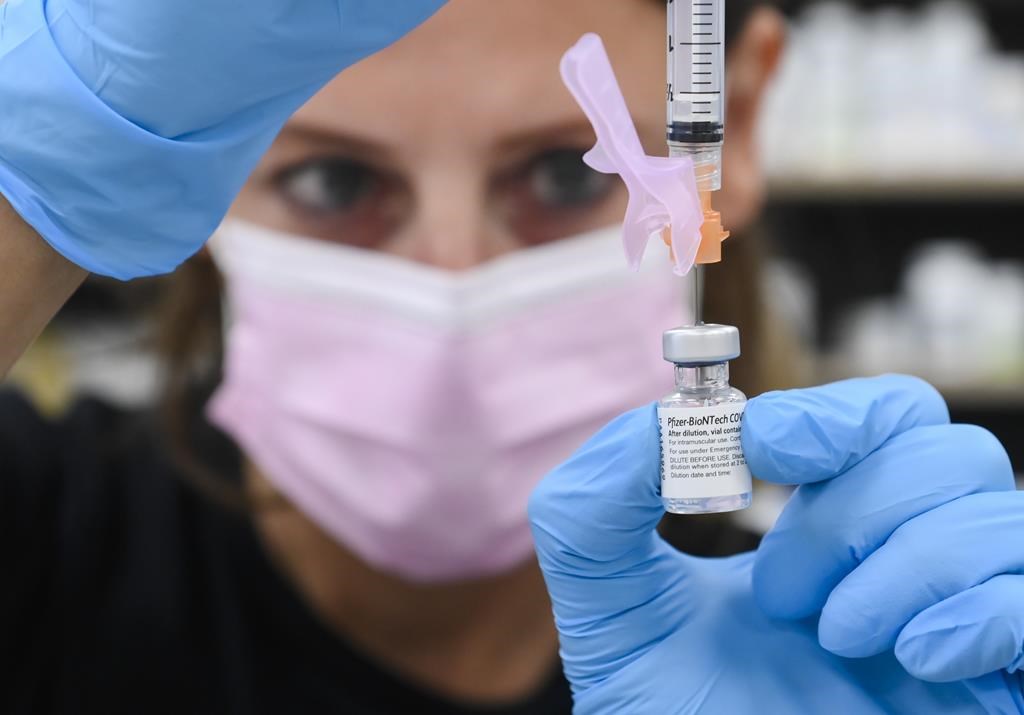
Health officials are reassuring Ontarians that mixing COVID-19 vaccines is safe and effective against the virus, following some confusion about messaging from the World Health Organization that seemed to say there is not enough data on the practice yet.
At the WHO’s Monday coronavirus briefing, chief scientist Dr. Soumya Swaminathan warned against mixing vaccines, as part of a longer discussion about booster doses.
It was later clarified that she was referring to booster doses for fully vaccinated people and warned against individuals “vaccine shopping” outside of public health regulations or deciding for themselves about a third or fourth shot in countries where there is ample supply of vaccines. Rather, she said people should rely on public health agencies to make that decision based on available data.
On Tuesday, Ontario’s Associate Chief Medical Officer of Health, Dr. Barbara Yaffe attempted to clear up the confusion and said taking a combination of any of the two mRNA vaccines, Pfizer or Moderna, as well as taking an mRNA vaccine following the AstraZeneca shot is still being recommended in the province.
“We are following the advice of the National Advisory Committee on Immunization (NACI), which recommends it is safe to mix these vaccines, based on studies from the U.K., from Spain, from Germany,” she said. “They have found that mixing these vaccines is very safe and produces a strong, effective immune response.”
Dr. Yaffe added that Ontario Health will continue to follow studies and data closely and work with NACI as well as the federal government on the issue.
Chief Medical Officer of Health, Dr. Keiren Moore, once again reiterated the importance of getting fully vaccinated and warned that the Delta variant “will want to surge and return in September if not earlier,” as the risk of spread is heightened with indoor activities and cold weather.
“The Delta strain will seek out unvaccinated individuals and so becoming immunized as soon as possible will ensure that you are not on that path of least resistance for the virus,” he said, adding that the highest incidence of infection over the last three months have been seen among those who are unvaccinated.
Dr. Yaffe said that since it was declared a variant of concern, Ontario has had over 20 outbreaks where Delta was the dominant strain. They usually involved gatherings where people were in close contact, without a mask and had low vaccination rates. Over 88.6 per cent of the current COVID-19 cases in the province are from the Delta variant.
She said mixing of the vaccines will allow people to get both shots of the vaccine sooner and help stem the spread of the variant.
Note: This article was edited to better reflect the comments made by Dr. Soumya Swaminathan in the correct context.
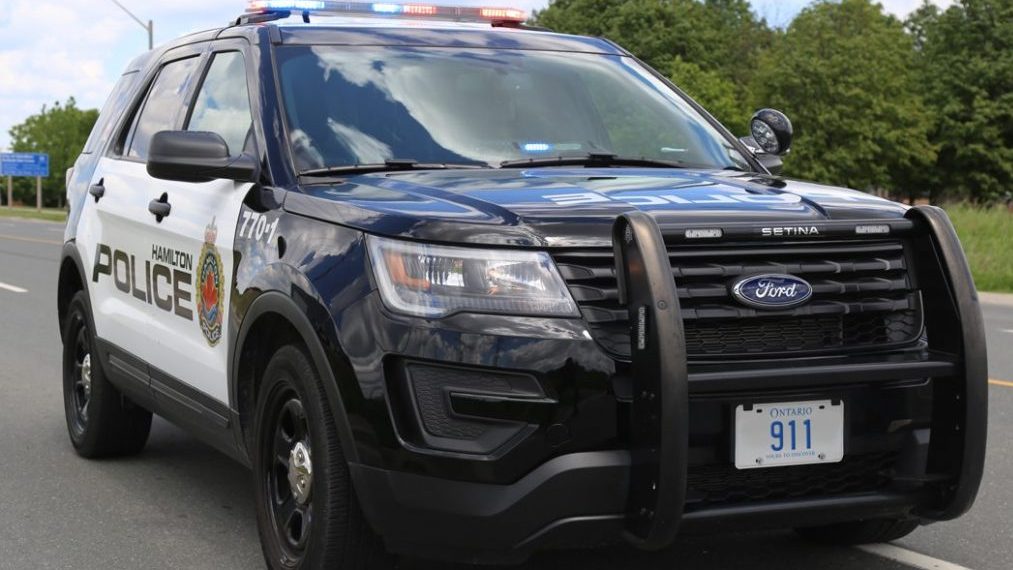
Hamilton police have charged a 40-year-old man after a Muslim mother and daughter were threatened using racial slurs and forced to hide from a suspect in Ancaster.
Investigators say the incident occurred around 9:30 p.m. in the parking lot of a plaza in the Ancaster Meadowlands Monday.
Police say the interaction began when a vehicle pulling out of a parking spot almost struck one of the victims. The suspect than began uttering threats towards the victims using slurs targeting the Muslim community.
The victims ran across the street and hid behind bushes while the suspect searched for them. He eventually located them and allegedly threatened to kill them.
Witnesses intervened after one of the victims ran screaming for help. The suspect then fled the area.
A 40-year-old Hamilton man was arrested Tuesday and is facing three charges of utter threat to cause death, two charges of assault with a weapon and dangerous operation and fail to comply probation.
The National Council of Canadian Muslims said the two women were wearing hijabs at the time of the incident.
They also shared a statement from the family targeted in this incident.
“We are shaken, but unbroken after the attack on our family last night. Let us be clear, this individual attempted to terrorize our family,” read the statement. “An individual drove dangerously to our family members. He swore at them. He cursed them with a number of racist and Islamophobic slurs. He threatened to murder them. He tried to tail them home in his vehicle.”
They added that in light of the attack in London, in which four members of a Muslim family were killed, it was incredibly terrifying.
Hamilton police say they are investigating the incident as a hate crime. Any witnesses are urged to contact investigators.

Vladimir Guerrero Jr. admired his 468-foot screamer for a moment before bouncing into his triumphant home run trot.
Quick out of the park, slow out of the box, Guerrero became the youngest All-Star Game MVP after driving in a pair of runs in the American League’s 5-2 win Tuesday night.
“Dad, this is for you,” Guerrero said in Spanish when he was presented with the Ted Williams All-Star Game MVP award.
At 22 years, 119 days old, the Toronto Blue Jays slugger is 117 days younger than Ken Griffey Jr. was when he won the award in 1992.
Vladimir Guerrero Sr. homered off Brad Penny in the 2006 All-Star Game. The younger Guerrero’s homer marked the third father-son duo to go deep in All-Star Game history, joining Griffey and his father and Bobby and Barry Bonds.
Guerrero crushed a slider from Milwaukee’s Corbin Burnes in the third inning that almost cleared the left field bleachers at cavernous Coors Field and gave the AL a 2-0 lead.
NL shortstop Fernando Tatis Jr. immediately put his glove on his head and slowly turned around to watch the ball leave the yard.
“Wow,” Tatis said. “It was a moonshot. It was something impressive. He’s been doing it all year. Why not show it off here?”
The 6-foot-2, 250-pound Guerrero has 28 homers in 2021.
Tatis was mic’d up for the third inning and he marveled at the drive, saying, “That was a bomb. … He should have admired it a little bit more. It’s the All-Star Game, boy. Have fun.”
That, he did.
Guerrero rocketed a comebacker near NL starter Max Scherzer in the first inning, just missing the three-time Cy Young Award winner. After he was thrown out at first, Guerrero jogged through the infield and offered Scherzer a bear hug.
He wasn’t as generous with Burnes. His homer was the longest at the All-Star Game since Statcast began tracking in 2015.
And it’s the longest by an astounding 58 feet. The previous best was Kris Bryant’s 410-foot shot in 2016. It was also the 200th homer in All-Star history.
He added a run-scoring groundout in the fifth that made it 3-0.
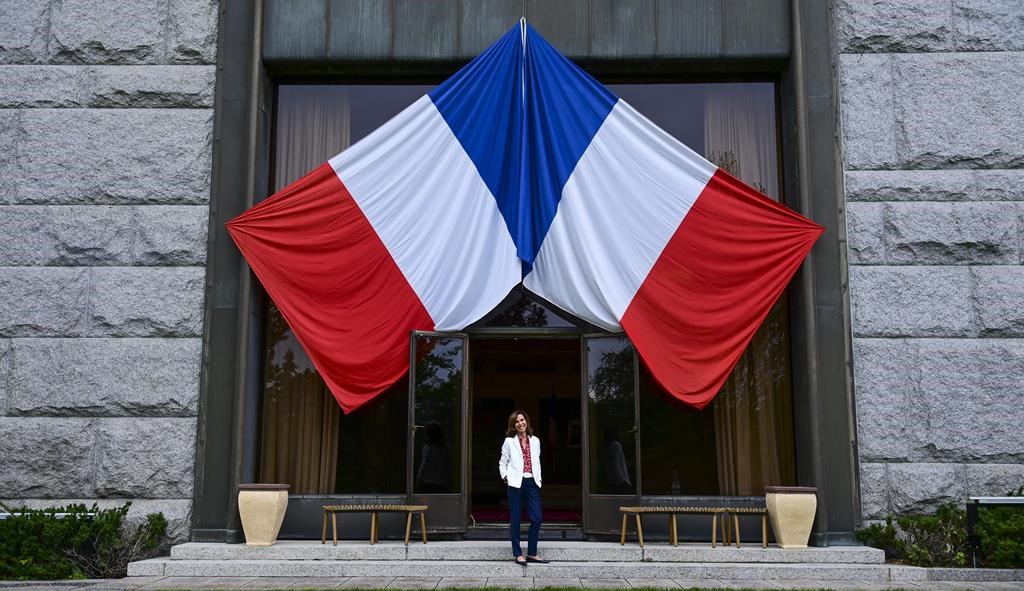
OTTAWA — France, which has opened its borders to Canadian tourists, is eager to see Canada reopen to the French.
The Canadian border remains closed to foreigners, with a few exceptions, and will be until at least July 21. Ottawa has extended the closure, month after month, since the beginning of the pandemic in March 2020.
At the French embassy in Ottawa Tuesday the representative of President Emmanuel Macron’s government argued the Canadian border should be reopened to the French as soon as possible.
“The borders will have to be reopened relatively quickly now for us to put Canada back on our travel plans,” Ambassador Kareen Rispal said. “If not, it’s true that French ministers will go to the countries where they can go.”
Otherwise, the relationship between the two countries will suffer, she warned.
“The consequence of the border closure is that there are no more visits,” Rispal said. “There are no more ministers. There are no more parliamentarians. There are no more manufacturing visits. There are no more visits by artists … relationships need to be worked on every day, to nourish them.”
France permits Canadians who can prove they are fully vaccinated, or who submit a recent negative COVID-19 test and who attest to not having COVID-19 symptoms, to enter its territory.
“We are a green country,” she said, referring to the colour system used by France to designate countries where the novel coronavirus is under control.
“Canada is a green country. We would be very happy if the French could return to Canada without constraints other than being doubly vaccinated, taking tests, etc. We aren’t asking to return to Canada in a haphazard way.”
Rispal said she will be watching what the Canadian government does on July 21.
Every time the border issue has come up during Prime Minister Justin Trudeau’s recent news conferences, he has said he understands everyone’s impatience but has noted, again and again, that the pandemic isn’t over.
The first loosening of the border restrictions came on July 5, when fully vaccinated Canadians were no longer required to quarantine on their return to the country — a measure that applied to everyone who already had the right to enter Canada, such as those with student visas.
Trudeau has promised to relax border restrictions further “in the coming weeks,” and has added he won’t open the door “before the right moment” to unvaccinated foreigners.
On Monday, Macron announced that starting in August, proof of vaccination or a negative COVID-19 PCR test will be required to enter restaurants, go to concerts or take the train in France. For Canadian tourists, paper proof of vaccination will be sufficient, according to the ambassador.
This report by The Canadian Press was first published July 14, 2021.
Lina Dib, The Canadian Press
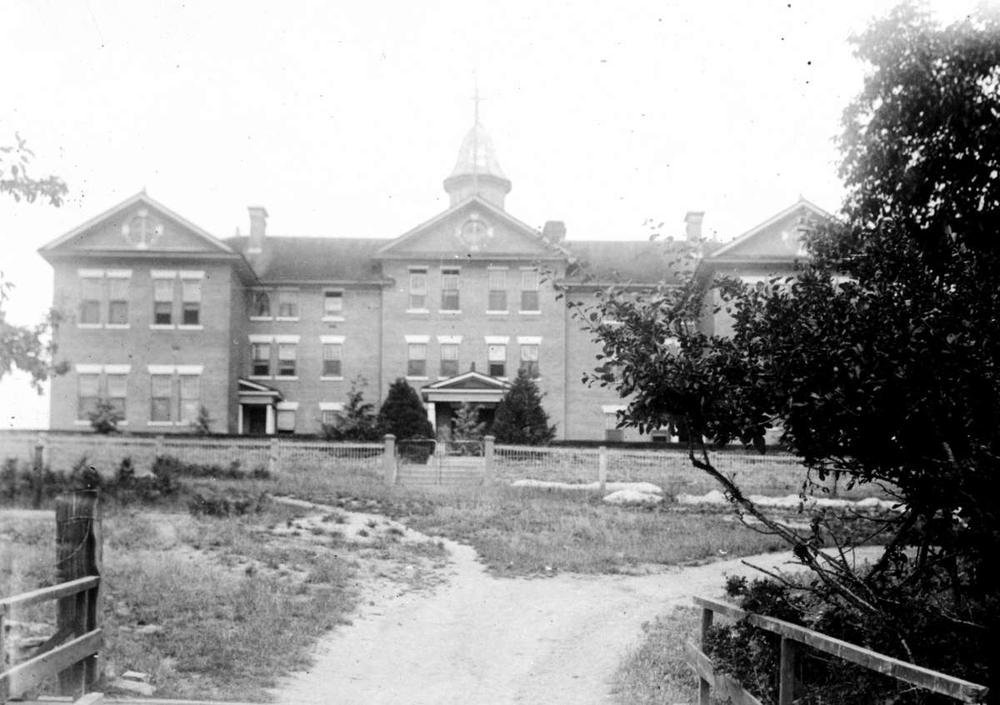
Emotional support or assistance for those who are affected by the residential school system can be found at Indian Residential School Survivors Society toll-free 1 (800) 721-0066 or 24 hr Crisis Line 1 (866) 925-4419.
PENELAKUT (NEWS 1130) — The Penelakut Tribe has confirmed more than 160 unmarked, undocumented graves at the site of a former residential school on their territory near Vancouver Island.
The Kuper Island Indian Residential School, located off the coast of Cheamainus in the Southern Gulf Islands, operated between 1889 and 1975 and was run by the federal government and the Roman Catholic Church. The building was demolished in the 1980s and Kuper Island was renamed as Penelakut in 2010.
“We understand that many of our brothers and sisters from our neighboring communities attended the Kuper Island Industrial School. We also recognize with a tremendous amount of grief and loss, that too many did not return home,” says a statement from Chief Joan Brown that was shared online by Cowichan Tribes.
“It is impossible to get over acts of genocide and human rights violations. Healing is an ongoing process, and sometimes it goes well, and sometimes we lose more people because the burden is too great. We are at another point in time where we must face the trauma because of these acts of genocide. Each time we do, it is possible to heal a little more.”
The institution was known as “Canada’s Alcatraz” because of its remote location, and because of documented cases of children who died trying to escape.
This comes after similar discoveries at other sites in B.C. and Saskatchewan.
In May, the Tk’emlúps te Secwépemc First Nation confirmed, using ground-penetrating radar, that the remains of 215 children — some as young as three years old — had been found. The search of the site of the former Kamloops Indian Residential School, which was once the largest in Canada’s residential school system, renewed calls for all former sites to be searched across the country.
Less than a month later, the Cowessess First Nation confirmed 751 unmarked graves were uncovered on the grounds of the former Marieval Indian Residential School in Saskatchewan. Later in June, the Lower Kootenay Band said a search using ground-penetrating radar found 182 human remains in unmarked graves near Cranbrook, close to where the Kootenay Indian Residential School once stood.
Calls for apology from Pope renewed after confirmation of unmarked graves
After the unmarked graves were located — something First Nations leaders have stressed was not a discovery but rather a confirmation of what Indigenous communities have long known — theTk’emlúps te Secwépemc First Nation and the Cowesses First Nation have both said an apology from the Pope l is a crucial first step toward reconciliation.
One of the 94 Calls to Action of the Truth and Reconciliation Commission in 2015 was for the leader of the Roman Catholic Church to apologize for its role in a system that saw 150,000 First Nations, Inuit, and Métis children taken from their families and confined in conditions that constituted cultural genocide.
“We call upon the Pope to issue an apology to Survivors, their families, and communities for the Roman Catholic Church’s role in the spiritual, cultural, emotional, physical, and sexual abuse of First Nations, Inuit, and Métis children in Catholic-run residential schools,” the commission wrote.
In 2018, Pope Francis said he would not be making an apology despite a formal request from Prime Minister Justin Trudeau and pleas from survivors and their families. The Canadian Conference of Catholic Bishops said that while the Pope acknowledged the commission’s findings and expressed regret for past wrongs, he “felt he could not personally respond.”
On June 6, more than a week after the announcement from the Tk’emlúps te Secwépemc First Nation, Pope Francis made a statement. He said he was “following with sorrow” the news of an unmarked burial site brought. He added the “shocking” discovery is a call for Canadian religious and political authorities to keep working toward reconciliation.
“I join with the Catholic church in Canada in expressing closeness to the Canadian people traumatized by the shocking news,” he said. “This sad discovery increases the awareness of the sorrows and sufferings of the past.”
The Pontiff has made no further statements.
A delegation of Indigenous leaders will visit the Vatican later this year to press for a papal apology.
Calls for Canada to investigate all sites of former residential schools
The United Nations is among those who have called on Canada to perform an exhaustive investigation into uncovering the remains of residential school children across the country On June 2, the federal government announced it was providing First Nations communities with funding to conduct such searches at former sites.
The Truth and Reconciliation Commission issued its final report on residential schools more than five years ago. The nearly 4,000-page account details the abuse inflicted on Indigenous children after they were taken forcibly from their families to institutions where they were forbidden to speak their language and punished brutally for any attempts to practise their culture. Physical and sexual abuse were rampant.
The commission identified the names or information of more than 4,100 children who died in the residential school system. However, the exact number remains unknown.
With files from NEWS 1130 Staff and the Canadian Press
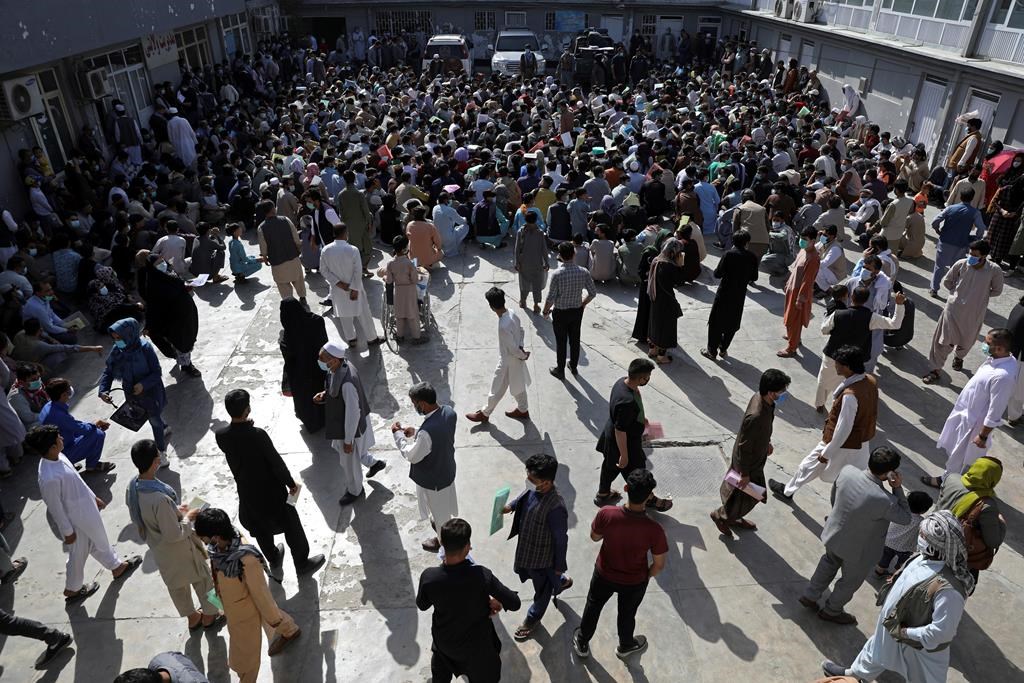
Ottawa will continue sending humanitarian and development assistance to Afghanistan after the United States completes its troop withdrawal from the country next month, International Development Minister Karina Gould says.
U.S. President Joe Biden said last week the U.S. military operation in Afghanistan will end Aug. 31, nearly 20 years after the United States and its allies took down the Taliban government in Kabul.
Biden pushed back against the notion the U.S. mission has failed but also noted it was unlikely the Afghan government would control all of Afghanistan after the U.S. leaves.
He urged the Afghan government and the Taliban, which he said remains as formidable as it did before the start of the war, to come to a peace agreement.
Gould said in an interview that Canada is constantly monitoring and evaluating the situation through dialogue with its partners including non-governmental organizations and United Nations agencies.
“At this point in time, our partners continue to work and deliver services for the Afghan people.”
She said Ottawa is providing humanitarian assistance to the Afghan people, as 50 per cent of Afghans rely on such help for basic necessities.
On Friday, the Taliban claimed it now controls 85 per cent of Afghanistan’s territory amid a surge in wins on the ground as American troops continue their pullout from the country.
The announcement came at a press conference at the end of a visit by a senior Taliban delegation to Moscow to offer assurances that the insurgents’ quick gains in Afghanistan do not threaten Russia or its allies in Central Asia.
The Taliban promised not to attack provincial capitals or seize them by force, and expressed hopes for a “political resolution” with Kabul.
Gould said she is concerned about the rise in attacks on humanitarian workers and the civilian population recently.
But she said it’s unlikely the Taliban is controlling 85 per cent of the country.
“Certainly they have made some gains, but it’s not, from our perspective, as large as what they are claiming,” she said. “They might be inflating their numbers when in actual fact they don’t control that amount of territory.”
Global Affairs Canada spokesman Grantly Franklin said Ottawa calls for a permanent and comprehensive ceasefire to end the interminable suffering of the Afghan people and facilitate provision of humanitarian assistance.
“Canada’s engagement in Afghanistan prioritizes peace, democracy and human rights,” he said in a statement.
According to government data, about 40,000 Canadians served in Afghanistan from 2001 to 2014, with Canada providing a total of $3.6 billion in aid to the country since 2001.
Canada’s efforts in Afghanistan have contributed to a real improvement in the lives of the most vulnerable, Franklin said. “Women and children in particular have better access to education, health and human rights, and Canada will do its utmost to preserve these gains.”
In November, Canada pledged $270 million in additional development assistance through 2024.
Roland Paris, director of the graduate school of public and international affairs at the University of Ottawa, said much of Canada’s assistance now goes to supporting the Afghan security forces and to development projects aimed at improving conditions for women and girls.
“Unfortunately, the women and girls that our development assistance has targeted are particularly vulnerable if the Taliban continues to spread its influencing control,” he said.
“It really depends on how the Taliban behaves, but its track record is not encouraging, to say the least.”
He said there’s very little Canada can do if the Taliban continues expanding its territory.
“Canada doesn’t have very much influence there,” he said. “If the U.S. and its allies were unable to gain control of the situation with 130,000 troops, how much can Canada do with zero troops on the ground?”
Ferry de Kerckhove, a former Canadian ambassador in Pakistan, Indonesia and Egypt, said Canada doesn’t have a real foreign policy in Afghanistan and can’t do anything about the U.S. withdrawal.
“I’m sorry to say it as a former Canadian diplomat, I think Canada doesn’t matter much in that ballgame.”
This report was first published by The Canadian Press on July 13, 2021.
— With files from The Associated Press.
—
This story was produced with the financial assistance of the Facebook and Canadian Press News Fellowship.
Maan Alhmidi, The Canadian Press
BAGHDAD (AP) — The death toll from a catastrophic hospital blaze in a city in southern Iraq the previous day rose to 58 on Tuesday, medical officials said.
Two health officials said that more than 100 people were also injured in the fire that torched the coronavirus ward of al-Hussein Teaching Hospital in the city of Nasiriyah on Monday.
Earlier, officials had said the fire was caused by an electric short circuit, but have not provided more details. Another official said the blaze erupted when an oxygen cylinder exploded. The officials spoke on condition of anonymity because they were not authorized to speak to journalists.
The new ward, opened just three months ago, contained 70 beds.
Prime Minister Mustafa al-Kadhimi chaired an emergency meeting in the wake of the fire and ordered the suspension and arrest of the health director in Dhi Qar province, where Nasiriyah is located, as well as the director of the hospital and the city’s director of civil defense. A government investigation was also launched.
It was the second time a large fire killed coronavirus patients in an Iraqi hospital this year. At least 82 people died at Ibn al-Khateeb hospital in Baghdad in April, when an oxygen tank exploded, sparking the blaze.
Qassim Abdul-zahra, The Associated Press









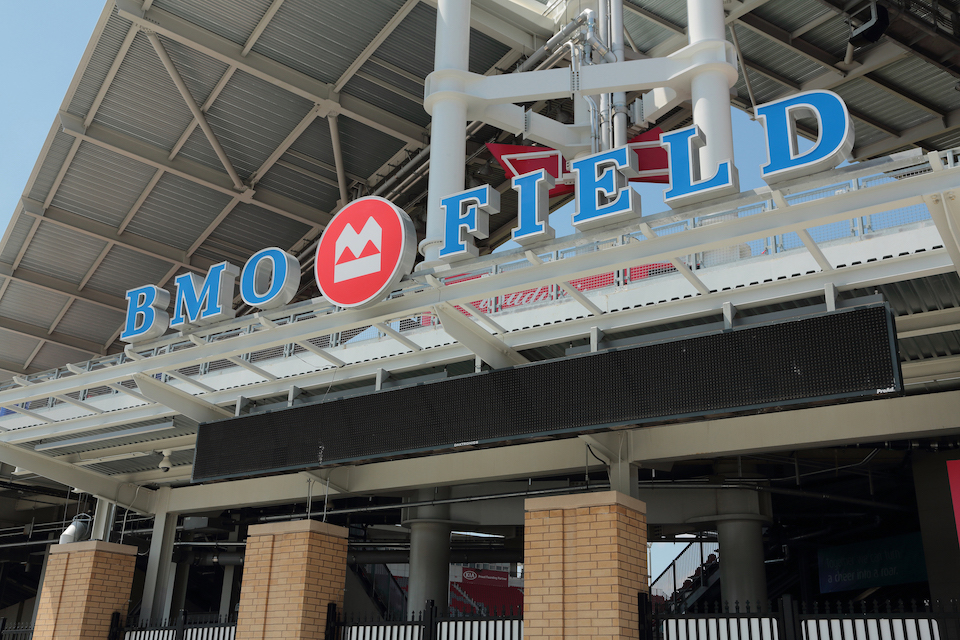


 Link to GoFundMe page:
Link to GoFundMe page:




